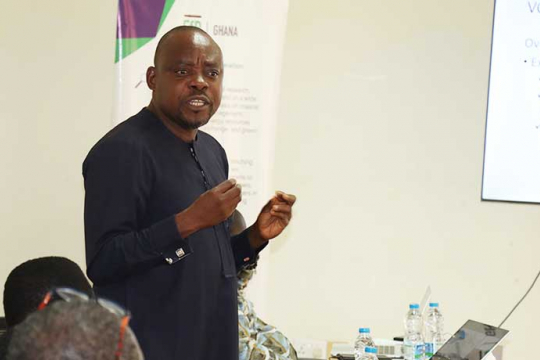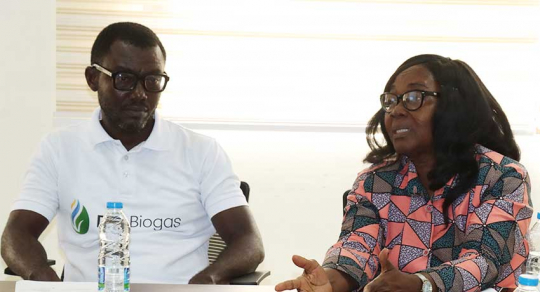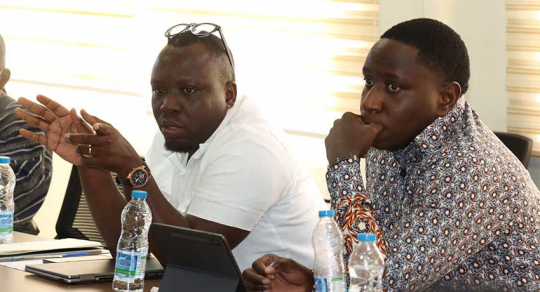EfD Ghana organized an inception workshop to share knowledge and engage stakeholders on the project, Exploring the potential and challenges of voluntary carbon markets in developing countries. This multi-country project highlights the critical role of carbon markets in the transition to a low-carbon economy.
Gathering key stakeholders from Ghana’s environment and climate sectors, the workshop provided an opportunity to introduce the project which spans over 30 months, share insights, and garner stakeholder support and expertise.
“There is a lot of information out there, but sometimes assessing that information can be challenging. Engagements like this are crucial for raising awareness and understanding,” said Daniel Lamptey, Principal Program Officer at the Environmental Protection Agency (EPA).
Exploring voluntary carbon markets for climate goals
Francis Atsu, co-researcher on the project underscored the importance of Voluntary Carbon Markets (VCMs).
“VCMs allow individuals and organizations to trade carbon credits to offset greenhouse gas emissions, fostering global collaboration, promoting climate action, and driving sustainability goals,” he explained.
“VCMs help fund emission-reducing projects and support organizations in achieving net-zero goals. Exploring these markets is critical to advancing Ghana’s climate objectives,” he added.
The project aims to facilitate future targeted research calls, improve the design and implementation of national and regional carbon market initiatives, and strengthen governments’ capacity to assess the viability of carbon markets to achieve green transformation. The initiative is also being implemented in Rwanda, Kenya, Côte d'Ivoire, Nigeria, and Morocco.
Emphasizing inclusivity and stakeholder collaboration
The participants, including people from academia, public sector and industry, actively engaged with researchers, providing meaningful questions and insights to refine the project.
“Sensitization ensures everyone, from government to grassroots, is included, increasing the success of policy interventions,” noted Sabina Anokye Mensah, CEO of ANOMENA Ventures, producers of clean cooking solutions for female entrepreneurs and other small-scale businesses.
She emphasized the value of inclusivity and proposed the use of gender analytic tools to enhance policy interventions. Such efforts help align diverse perspectives for better research outcomes and ensure stakeholder support and uptake, she added.
Leveraging stakeholder expertise for research impact
Building on the rich discussions and insights shared during the workshop, lead researcher Wisdom Akpalu expressed gratitude to the participants, emphasizing the value of their contributions.
“We deeply appreciate the wisdom, expertise, and concerns shared and assure you that we will leverage your perspectives to shape and enhance our work, ultimately increasing the project's impact on Ghana’s sustainability objectives,” he said.
Held on 20 December at the ISSER conference center, the workshop marked a pivotal step in aligning efforts and garnering support for the project.
By Vicentia Quartey


